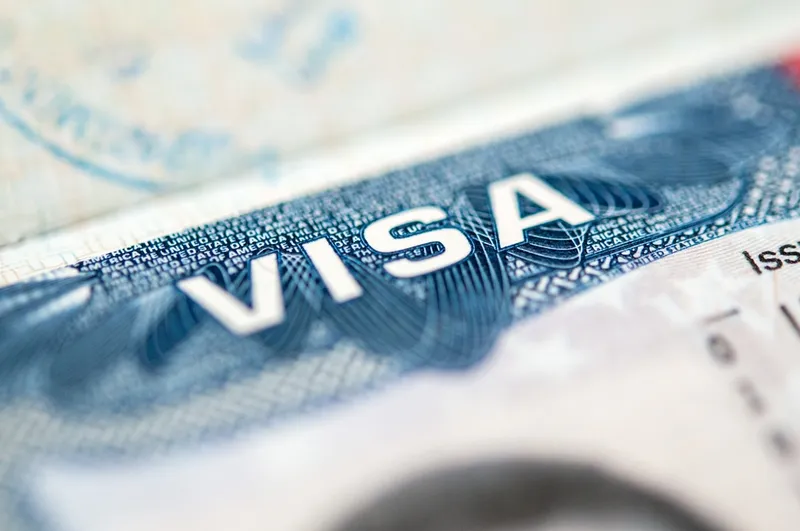I-601 Waiver of Grounds of Inadmissibility

U.S. immigration law is complex, and at times, unforgiving. Many immigrants find themselves labeled “inadmissible” for reasons like overstaying a visa, entering without inspection, misrepresentation, or past criminal history. Fortunately, there are options. Form I-601, the Application for Waiver of Grounds of Inadmissibility, offers a legal path forward for many people facing these challenges.
This waiver is a powerful tool that allows eligible immigrants to request forgiveness of specific grounds of inadmissibility, enabling them to obtain lawful permanent residence (a green card) despite past violations. Whether you’re applying for a green card through a U.S. citizen spouse or seeking consular processing abroad, the I-601 may be the lifeline you need to reunite with loved ones and move forward with your future in the United States.
Understanding Grounds of Inadmissibility
U.S. immigration law lists numerous reasons why someone may be found inadmissible under the Immigration and Nationality Act (INA). Some of the most common include:
- Unlawful presence (triggering the 3 or 10-year bar under INA §212(a)(9)(B))
- Fraud or misrepresentation (e.g., using a fake visa or false information on an application)
- Certain criminal convictions (such as crimes involving moral turpitude or drug offenses)
- Prior deportation or removal orders
- Health-related issues (e.g., communicable diseases or lack of required vaccinations)
Not all grounds of inadmissibility are waivable, and each case requires a detailed legal analysis to determine eligibility.
What Is Form I-601 and Who Needs It?
Form I-601 is a request to USCIS (U.S. Citizenship and Immigration Services) to forgive certain grounds of inadmissibility, allowing the applicant to continue with their immigration process. It’s typically filed after the applicant has been deemed inadmissible during an immigration application. Often while applying for an immigrant visa at a U.S. consulate abroad.
You may need a Form I-601 if:
- Your green card application (I-485 or consular process) was denied due to inadmissibility
- You’re subject to the 3- or 10-year bar due to unlawful presence
- You’ve been accused of immigration fraud or prior removal
In some cases, individuals who are already in the U.S. may file this waiver while pursuing Adjustment of Status. Others will need to file from abroad, especially after a consular interview leads to a denial due to inadmissibility.
Difference Between I-601 and I-601A
Many people confuse Form I-601 with I-601A. While both deal with inadmissibility waivers, they apply in different contexts:
Form | Purpose | Filing Location |
I-601 | Waives a broad range of inadmissibility grounds | After denial, from within the U.S. or abroad |
I-601A | Specifically waives unlawful presence | Before leaving the U.S. for consular processing |
If you’re still in the U.S. and only inadmissible due to unlawful presence, the I-601A provisional waiver may be a better fit. Everyone else will likely require the standard I-601 waiver.
Eligibility Requirements for the I-601 Waiver
To qualify for an I-601 waiver, you must meet specific criteria, including:
- Be inadmissible under a ground that can be waived (not all grounds are eligible).
- Have a qualifying relative, such as a:
- U.S. citizen or lawful permanent resident (LPR) spouse or parent.
- In certain cases, a U.S. citizen fiancé(e).
- Prove “extreme hardship” to your qualifying relative if you are not allowed to remain in or return to the U.S.
Note: Children are not qualifying relatives under the statute, though their hardship may be considered indirectly if it impacts the parent.
What Counts as “Extreme Hardship”?
The extreme hardship standard is more than just emotional difficulty or inconvenience. USCIS looks for compelling evidence that the qualifying relative would suffer serious harm if the applicant is denied a green card.
Examples include:
- Medical issues requiring treatment only available in the U.S.
- Financial hardship from loss of income or caregiving
- Educational disruptions for children
- Fear of returning to a dangerous country
- Psychological suffering or diagnosed mental health conditions
To support your case, you’ll need documentation like medical records, tax returns, affidavits, and expert evaluations.

How to File Form I-601
- Complete Form I-601: Available on the USCIS website.
- Attach supporting documents, including:
- Proof of qualifying relationship
- Evidence of hardship
- Prior immigration applications or denials
- Any other relevant documentation
- Pay the filing fee: As of now, $1,050 (check current USCIS fee schedule).
- File with the correct USCIS address depending on whether you’re inside the U.S. or abroad.
- Tell a compelling personal story: paint a full picture of your family’s hardship
- Submit detailed evidence, including:
- Psychological evaluations from licensed professionals
- Medical records
- Affidavits from community members, clergy, teachers, etc.
- Organize your documentation clearly and logically
- Consider legal representation to help navigate the complexities and legal citations
A strong waiver is not just about forms, it’s about building a persuasive case narrative supported by facts and law.
Once your I-601 is filed:
- USCIS will issue a receipt notice (Form I-797C)
- They may issue a Request for Evidence (RFE) if additional documents are needed
- A final decision will be mailed, granting or denying the waiver
If denied, you may:
- File a Motion to Reopen or Reconsider
- File a new I-601 with stronger evidence
- Pursue other forms of relief (like cancellation of removal, if in immigration court)
Some I-601 waivers apply in unique contexts:
- Non-citizen petitioners (e.g., lawful permanent residents sponsoring a spouse)
- Conditional green card holders (2-year marriage-based green cards) who face inadmissibility during renewal (Form I-751)
It’s critical to assess the entire immigration timeline to determine the right waiver strategy.
USCIS takes I-601 waivers seriously, especially when fraud or criminal grounds are involved. In some cases:
- You may be called for a waiver-specific interview
- You may be asked to undergo a psychological or medical examination
- USCIS may contact your qualifying relative directly
Be prepared with an immigration attorney from Hussain & Gutierrez to respond quickly and truthfully.

Why Choose Hussain & Gutierrez Law?
At Hussain & Gutierrez Law, we understand how high the stakes are for you and your family. We bring:
- Over 30 years of combined immigration experience
- Culturally competent, bilingual support for Spanish-speaking clients
- A track record of success in extreme hardship waiver cases
- Personalized strategies tailored to each client’s needs
We help gather compelling documentation, build your legal argument, and guide you through every step of the process.
Call 888-997-3701 for a free consultation today.


Have a question? Ask our
I-601 waiver lawyers
Yes, if you’re applying for Adjustment of Status and your application is denied due to inadmissibility.
You may appeal, file a Motion to Reopen, or submit a stronger waiver. Legal counsel is essential in these situations.
On average, 6 to 18 months, depending on complexity and USCIS service center workload.
No, you should not leave the U.S. unless advised by your attorney. Departure could trigger additional inadmissibility issues.

